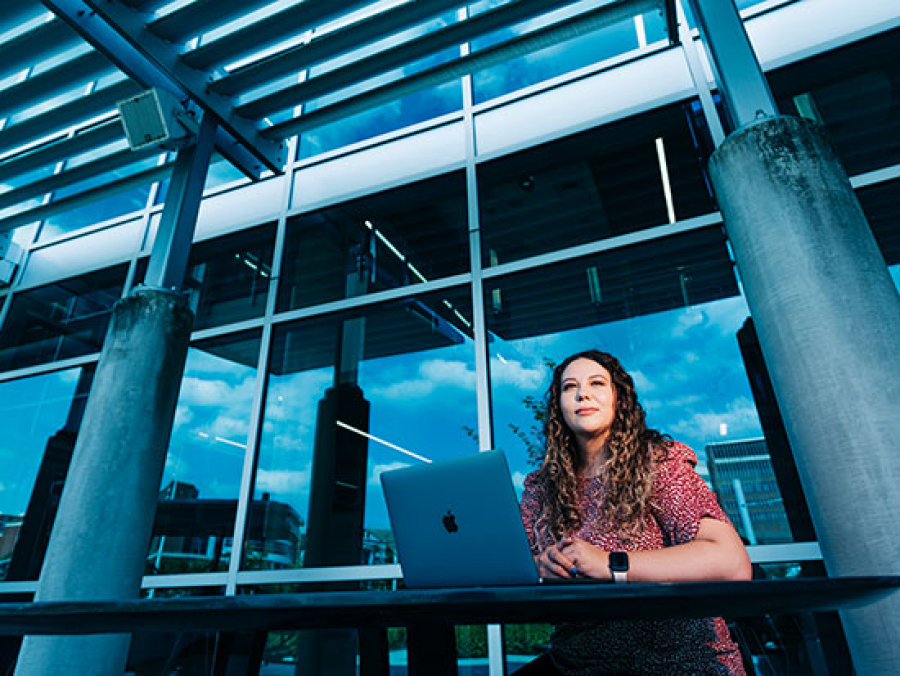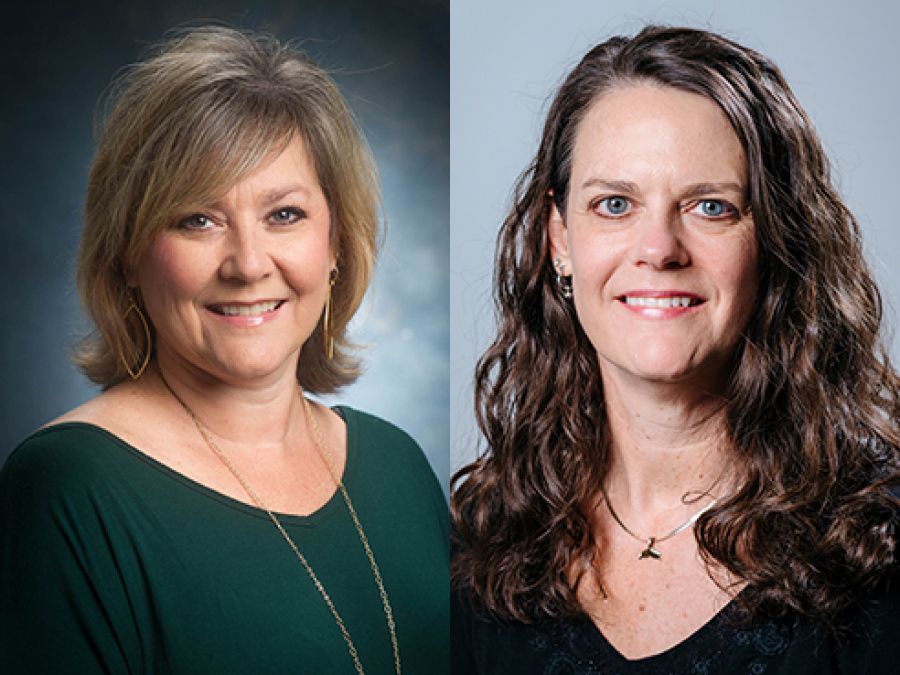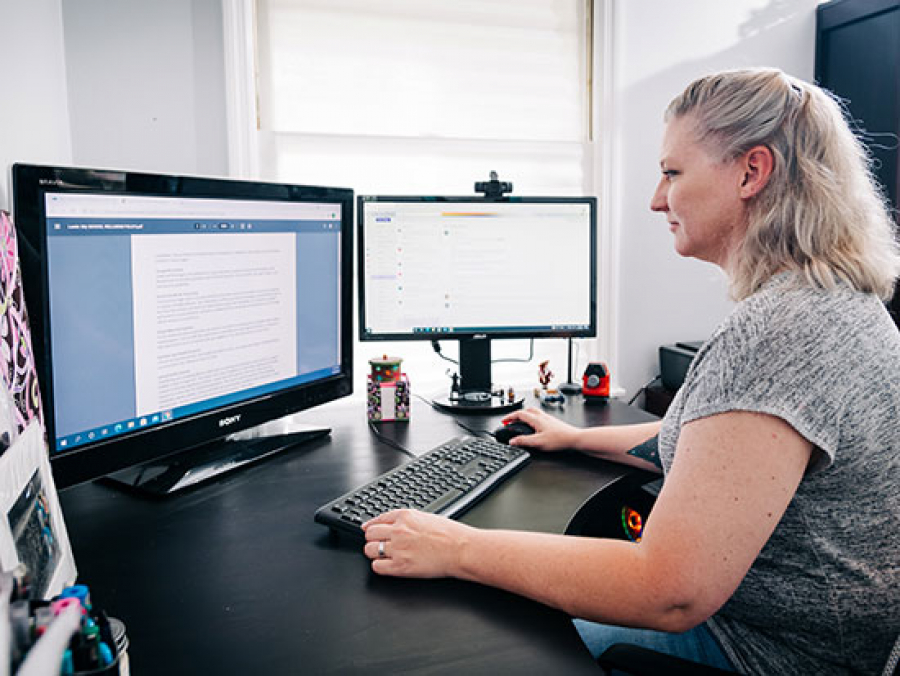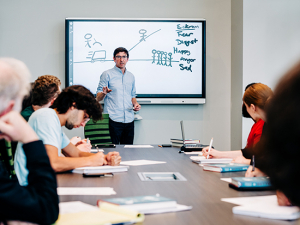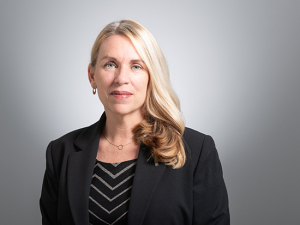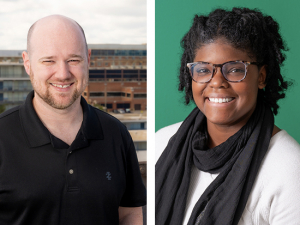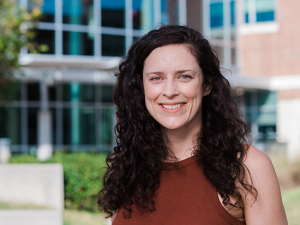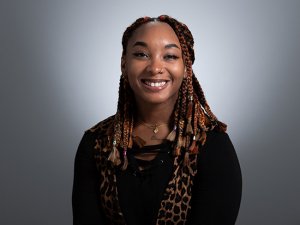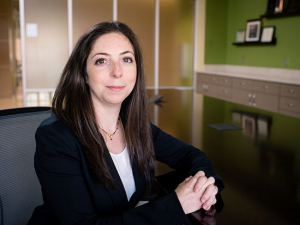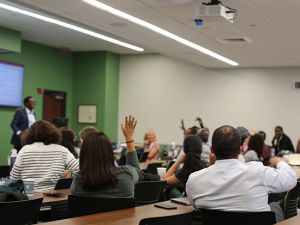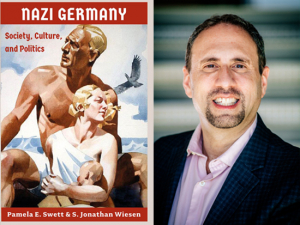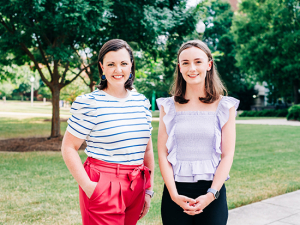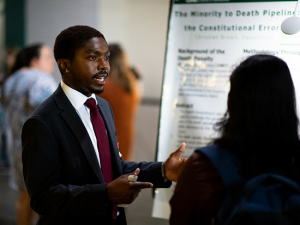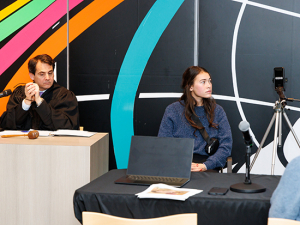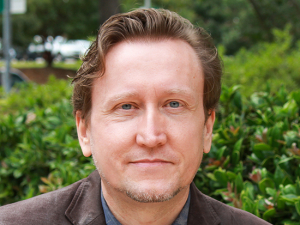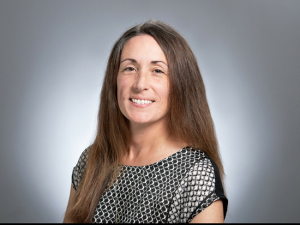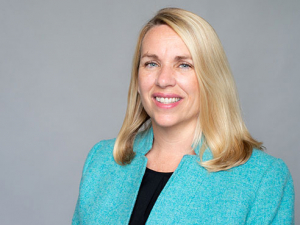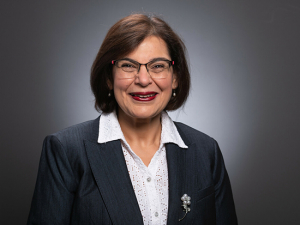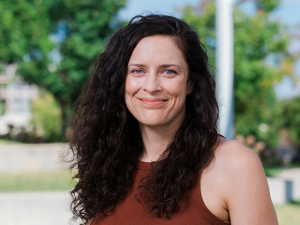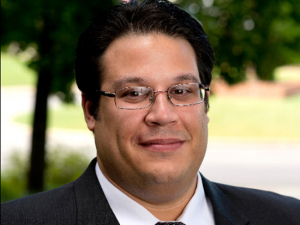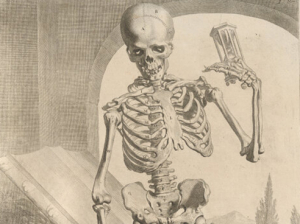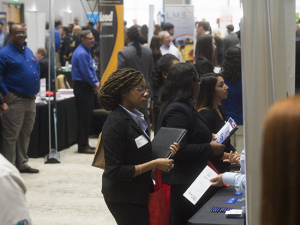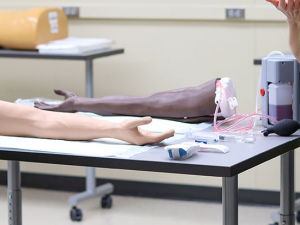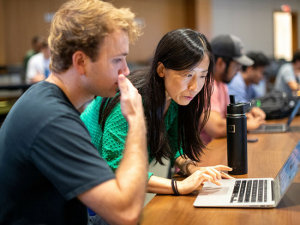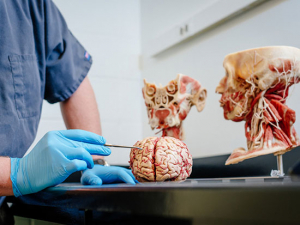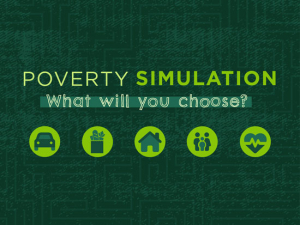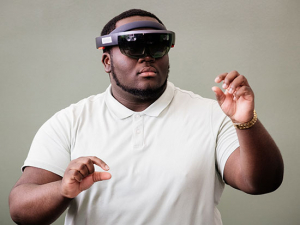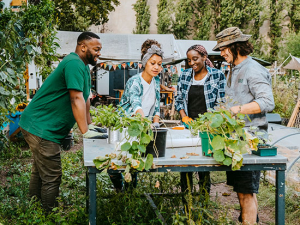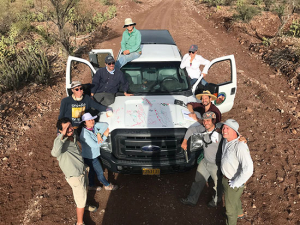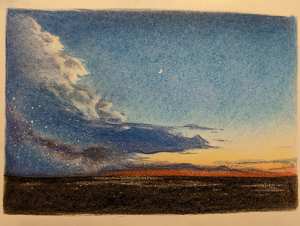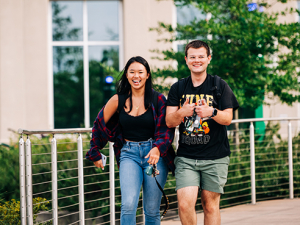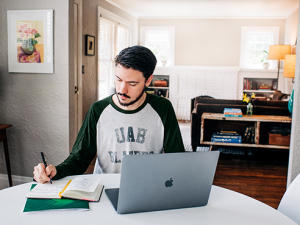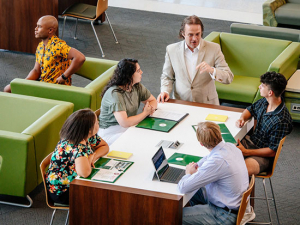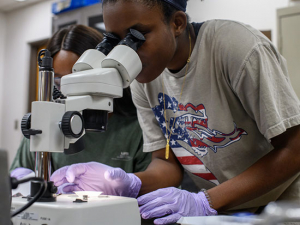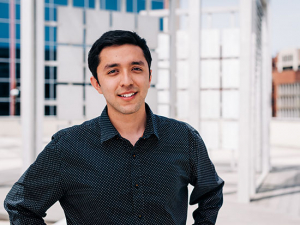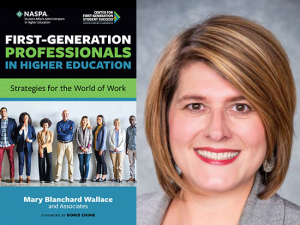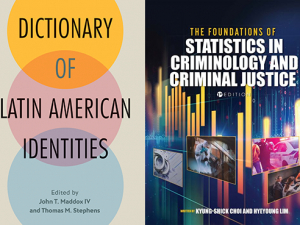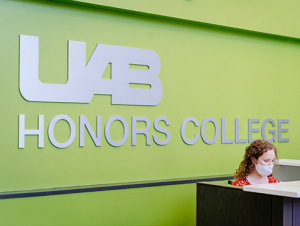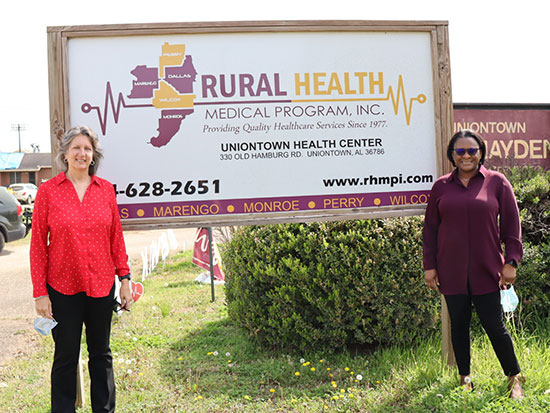 Laura Gilmour (left) and HUB Worldwide board member Oye Akisanyo (right) visiting the Uniontown Health Center in central Alabama, one of several Rural Health Medical Program clinics that HUB is supporting with much-needed medical equipment and supplies. Image courtesy Laura GilmourCOVID-19 brought the world to a halt. That presented a challenge for Laura Gilmour and HUB (Health Underserved Biomedical) Worldwide, the nonprofit Gilmour founded in 2019 and serves as president. Its mission is to take unused or surplus medical equipment from the United States, where it is bound for landfills, to medical facilities in need overseas. But delivery is only one aspect. The innovative part of Gilmour's vision was to include training, setup, maintenance and repair for equipment as a way of providing jobs and ongoing support in the local setting.
Laura Gilmour (left) and HUB Worldwide board member Oye Akisanyo (right) visiting the Uniontown Health Center in central Alabama, one of several Rural Health Medical Program clinics that HUB is supporting with much-needed medical equipment and supplies. Image courtesy Laura GilmourCOVID-19 brought the world to a halt. That presented a challenge for Laura Gilmour and HUB (Health Underserved Biomedical) Worldwide, the nonprofit Gilmour founded in 2019 and serves as president. Its mission is to take unused or surplus medical equipment from the United States, where it is bound for landfills, to medical facilities in need overseas. But delivery is only one aspect. The innovative part of Gilmour's vision was to include training, setup, maintenance and repair for equipment as a way of providing jobs and ongoing support in the local setting.
What to do then, when cargo could travel internationally but people couldn't? "We really want to work with communities locally and globally," said Gilmour, who earned an master's in business administration and certificate in Global Health from UAB in 2019. "We had the funds to ship internationally but we couldn't travel due to the pandemic." Then one of her board members had an idea: "She said, 'Why don't we adopt clinics here in Alabama?'" The board thought it was a great idea and voted in June 2020 to set up a new Adopt a Clinic program. "There are huge needs in the central part of Alabama as well as local clinics serving underserved and homeless populations, and we have the ability to help them meet some of their supply needs," Gilmour said.
Adapting to ever-shifting circumstances is a fact of life for global health work, says Meredith Gartin, Ph.D., assistant professor in the Department of Health Care Organization & Policy in the School of Public Health and program director for the Global Health certificate program, which is based in UAB’s Sparkman Center for Global Health. “Most of our partners are in low-resource areas where change is a constant,” Gartin said. “You are always having to be flexible and adaptable to build around those challenges.”
From colposcopes to CPR manikins
This past year, Gilmour arranged partnerships with Alabama Regional Medical Services and Health Services Inc., two Federally Qualified Health Centers that operate clinics in the Birmingham and Montgomery areas and across the Black Belt. Supported by grants from the Community Foundation of Birmingham and the Central Alabama Community Foundation, HUB was able to deliver equipment including colposcopes, autoclaves, medical instruments, wheelchairs and CPR manikins, along with wound care and orthopedic supplies. “Although HUB Worldwide is a new nonprofit, we were able to distribute over $30,000 in supplies and equipment in 2020,” Gilmour said.
"It is rewarding to work here in Alabama, especially in the midst of the pandemic," Gilmour said. "We are fortunate in that we are young and nimble enough as an organization to pivot. A lot of nonprofits struggled in 2020, and we did, too, but we were also helped by some of the government funding that allowed us to meet needs, and individuals stepped up as well. We had a good fundraising year in the end."
This year, HUB established a partnership with the Rural Health Medical Program, which has 10 clinics serving a five-county region in central Alabama. This year’s project focuses on clinics in Marion, Uniontown, Selma and Demopolis, and is funded by grants from the Mike and Gillian Goodrich Foundation and CSX Beyond Our Rails. HUB is also seeking funding to help Alabama Regional Medical Clinics in Jefferson County again this year.
Enrollment growing in Public Health — and global health
The global impact of COVID-19 and the issues it raises regarding health disparities and health equity have fueled increased interest from students, said Gartin, who has developed curriculum and programs at several universities and is a member of the national education committee for the Consortium of Universities for Global Health. “We have seen a major increase in enrollment in the Global Health program as a result of the pandemic. Our enrollment was already increasing pre-pandemic and that has only accelerated. Right now, enrollment is up 200%.” When Ebola outbreaks in western Africa were leading world news in the 2010s, “the field of global health saw a bump in interest as well, but this is twice as large,” Gartin said. (See related story, Students are pouring into public health. Here's how UAB is pouring into them.)
One thing Gartin teaches students is that it isn’t necessary to travel overseas to reach the world. “Mostly when students start out, they want to go abroad, but the pandemic has changed that,” Gartin said. “They see that ‘out there’ can be here, too. We’re all part of the global system. I’ve been teaching that principle for a long time, teaching about immigrant and migrant issues, but I haven’t had a really great example of the global system until this past year.” There are always some practicing clinicians among students in the Global Health certificate program, “and some have told me, ‘I need to learn all this so I can care for my patients here in Alabama.’” Gartin, who has worked with asylum seekers and migrants for years, is a member of the Alabama Interfaith Refugee Partnership. “Students are saying, ‘How can I get involved? I’d like to do my internship here,’” Gartin said. “Online students who live in other states have asked for recommendations near their homes, too, and I connect them with local opportunities.” (Learn more about the Global Health program at UAB below.)
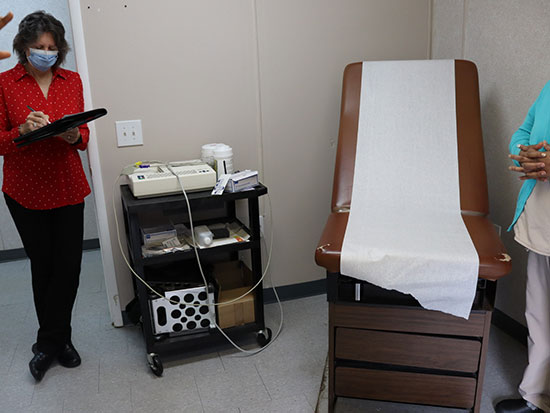 Gilmour conducts a needs assessment at an Alabama clinic. Image courtesy Laura Gilmour
Gilmour conducts a needs assessment at an Alabama clinic. Image courtesy Laura Gilmour
Eye-opening — and fun
As the world starts to open up in some areas, Gilmour is focused on helping supply the needs of the clinics in Alabama while strategizing on plans once HUB Worldwide can start working internationally. “We have identified a few potential international partnerships but will not pursue them until it is safe to travel abroad for extended periods of time,” she said.
Transitioning from a 20-year career in health care sales to running a nonprofit brought its challenges and surprises. “I was accustomed to strategizing, cold calls and networking, so I found nonprofit management somewhat familiar and exciting,” Gilmour said. “But it also has allowed me to apply the knowledge and insights gained through UAB’s MBA and Global Health programs, where I focused on health care policy and NGO management. Becoming the executive director, grant writer, fundraiser, supply chain coordinator, volunteer organizer and marketing manager simultaneously opened my eyes to the expanse of skills that are required to create and lead a successful organization. As a result, HUB continues to seek out funding, supplies, volunteers and staff to help the organization continue to grow and evolve.” The biggest challenge, Gilmour adds, is finding consistent financial support through individuals, corporations and foundations who resonate with the mission and goals of HUB to provide health care supplies, equipment and education to under-resourced communities. “If the mission and purpose of this organization speak to you, reach out to me,” she said. “I would love to help you or your organization find a way to join our journey.”
To learn more about HUB Worldwide, visit www.hubworldwide.org.
